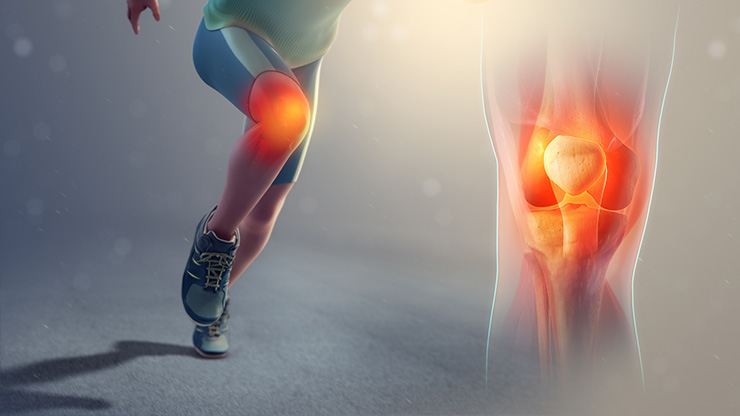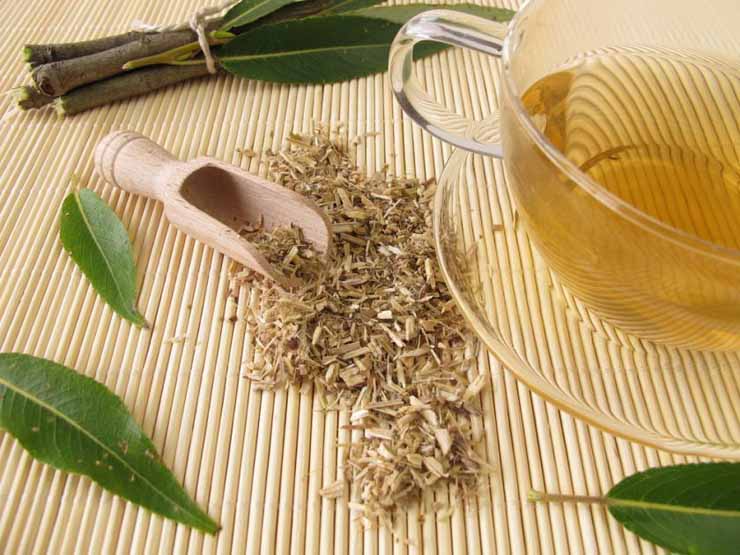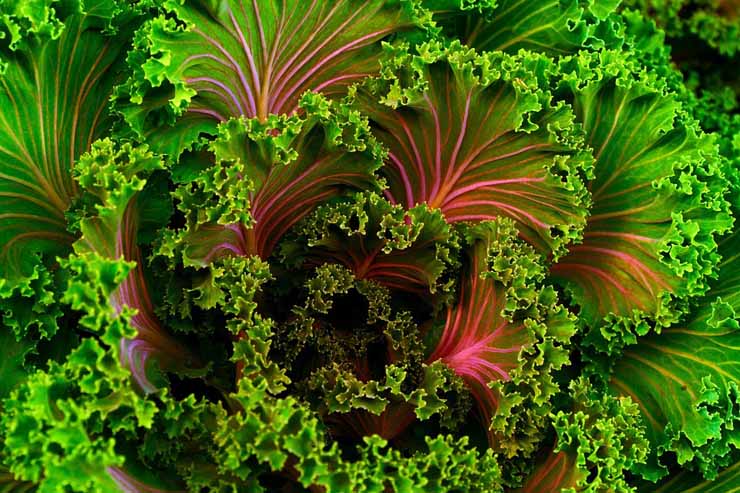
Knee pain is very common and can be caused by lots of things, from arthritis to injury. The problem could be in the joints themselves, or indicate an issue with the tendons (the cords that attach muscle to bone) or ligaments (which connect the thigh bone to the lower leg bones to stabilize the knee).
When you have a knee injury, which can occur quite easily from running, dancing, or even just putting your foot down wrong, it affects many aspects of daily life and you are probably willing to do just about anything to speed the healing. If you have arthritis, it is unfortunately not curable and can bother you for the rest of your life.
But in any case, there are effective natural remedies that can reduce your pain and improve conditions in and around your knees. Some you eat and some you apply directly to the affected knee – for some, you can do both! Try these remedies alone, in combination with each other, or in addition to medication from your doctor. They are all gentle and come with no troubling side effects.
1. Pineapple, cinnamon, and oat smoothie
Wellness starts in the kitchen and proper nutrition does wonders for strong knees, ligaments, and tendons. This breakfast smoothie has a ton of vitamins, minerals, and fiber, plus it just tastes good. The pineapple additionally contains a compound called bromelain, which is strongly anti-inflammatory.
The ingredients are: 1 cup cooked oats, 1 cup water, 1 cup orange juice, 3 cups chopped pineapple, 1 heaping teaspoon of ground cinnamon, and 1 teaspoon of honey. If desired, you can also add a palmful of crushed almonds for extra protein, fiber, and vitamin E. Simply add all ingredients except the oats into a blender and get it started on a low setting. Then slowly add the cooked oatmeal with the machine still running and blend until smooth.

pexels.com
2. Coconut oil
Coconut oil is touted by some as a miracle oil that will help you lose weight, protect against heart disease, and even make you smarter. Though there are some benefits associated with coconut oil, do bear in mind that it is a saturated fat. According to the American Heart Association, one tablespoon will net you more than 50% of the daily recommended limit of saturated fat.
However, we are going to recommend that you massage your painful knees with it. The fatty acids contained in coconut oil are natural lubricants and are anti-inflammatory. Simply warm your oil gently so that it melts into a liquid and rub it into affected areas. The combination of massage, natural lubrication, and lauric acid should loosen up your knee joints and minimize pain.
pexels.com
3. Apple cider vinegar
Apple cider vinegar is another natural remedy that people use for everything, and studies are backing up the claims. When it comes to knee pain, the alkalizing effect of ACV can dissolve toxins within the knee that may be sparking inflammation. You can benefit from apple cider vinegar by both drinking it and applying it topically.
If you drink it, the optimal amount is 2 tablespoons per day. Some people take it straight, some mix it with water, and some sweeten it with honey. If you would like to use it topically, mix your ACV with olive oil and massage into painful knees once per day for at least a week to see results.
pexels.com
4. Ginger
Ginger contains a compound called gingerol, which is a powerful anti-inflammatory compound that reduces swelling and muscle pain as well. It too can be eaten or massaged in the skin. Luckily, it smells and tastes great! Ginger is effective in both fresh and dried/powdered form, so go ahead and sprinkle it into soups, stir fries, and the batter for baked goods.
For a tasty tea, use approximately 2 tablespoons of fresh grated ginger root, 1-2 tablespoons of honey, and 1 ½ – 2 cups of water. Simply boil the ginger in the water for at least ten minutes, remove it from the heat, and strain. Then add honey and, if you like, lemon juice. Drink daily! You can also buy premade ginger oil and use it to massage the painful areas.
(c) Mariko GODA
5. Sesame oil & lemon
Sesame oil is used widely in China and India for a variety of health problems, both internally and externally. It seems to help prevent muscles spasms and for that reason, can relieve some of the pain associated with arthritic or injured knees. We recommend massaging it into the joints at least once a day. Gently warming the oil can provide an extra soothing element.
Some people swear that citric acid is also very helpful for joint pain and often combine it with sesame oil. Even though there have been no studies that confirm this, anecdotal evidence suggests that it is worth a try. You can simply cut a lemon, dip the open face of it into sesame oil, and use it to massage the sore spots.
pexels.com
6. Carrots
Another ancient Chinese remedy for knee pain is carrots. Their orange hue comes from beta-carotene, an antioxidant known to reduce inflammation. Carrots also contain vitamin A, another powerful anti-inflammatory compound. The effects seem stronger when carrots are cooked, but you can also get benefits by eating them raw. Juiced, chopped, or grated, it’s wise to aim for about two servings per day.
pexels.com
7. Turmeric
If you enjoy curry, you are already familiar with turmeric, which provides that distinctive flavor. Turmeric is something of a miracle spice, as studies have shown that it rivals ibuprofen in terms of its ability to relieve pain. The reason is its high level of a compound called curcumin, which has been used for ages in holistic medicine due to its anti-inflammatory effects.
Regular consumption of turmeric has even been linked to a lower risk of developing osteoporosis or rheumatoid arthritis. It can be purchased in capsules, added to all sorts of meals for an exotic flair, or made into a tea. Anyway you get it, try to take in some turmeric every day if you are suffering knee pain.
pexels.com
8. Mustard oil
Straight mustard oil, though it sounds like food, is not actually safe for eating. (Mustard essential oil, on the other hand, is okay to consume.) Mixed with a milder carrier oil, like olive or coconut, either type of mustard oil can be great when massaged into painful knees. It is thought to promote blood flow and reduce inflammation, thereby soothing pain.
You can boost the effects by adding garlic or onion to your mustard oil, cooking gently for about 10 minutes before straining and cooling. Garlic and onion both contain a compound called allicin, which also reduces inflammation.
We encourage you to try each of these natural remedies in turn to see which of them delivers the best pain relief for you. Results can vary based on the reason for your knee pain, but you can’t go wrong by eating more of any of the healthy staples on our list. They all have numerous health benefits beyond reducing inflammation. Even the topical treatments can’t hurt. The promise of less pain, more flexible knees, and better overall health is reason enough to give these ideas a fair trial. We hope you feel better soon!




Leave a Reply